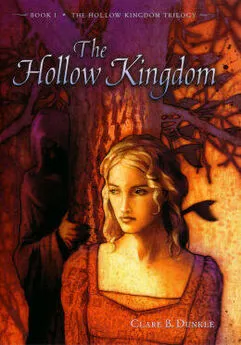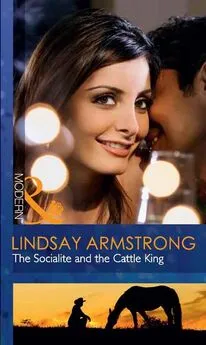Dewey Lambdin - The King`s Commission
- Название:The King`s Commission
- Автор:
- Жанр:
- Издательство:неизвестно
- Год:неизвестен
- ISBN:нет данных
- Рейтинг:
- Избранное:Добавить в избранное
-
Отзывы:
-
Ваша оценка:
Dewey Lambdin - The King`s Commission краткое содержание
1782 First officer on brig o'war . . . Fresh from duty on the frigate Desperate in her fight with the French Capricieuse off St. Kitts, Midshipman Alan Lewrie passes his examination board for Lieutenancy and finds himself commissioned first officer of the brig o'war Shrike. There's time for some dalliance with the fair sex, and then Lieutenant Lewrie must be off to patrol the North American coast and attempt to bring the Muskogees and Seminoles onto the British side against the American rebels (dalliance with an Indian maiden is just part of the mission). Then it's back to the Caribbean, to sail beside Captain Horatio Nelson in the Battle for Turks Island. . . .Naval officer and rogue, Alan Lewrie is a man of his times and a hero for all times. His equals are Hornblower, Aubrey, and Maturin--sailors beloved by readers all over the world.
The King`s Commission - читать онлайн бесплатно полную версию (весь текст целиком)
Интервал:
Закладка:
"Godamercy, sir," Cony gasped as they opened the hatch gratings.
Crammed in between bales and crates of cargo were fifty slaves, naked as the day they were born, chained together with ankle shackles into two rows on either side of the hold, their wrists also bound by cuffs and lighter chain. They were squatting or lying in their own filth that did not drain off into the bilges. They glared up at him angrily, some begging for water with cupping motions by their mouths, some rubbing their bellies for food and miming the motions of eating.
"Godamercy, sir!" Cony said again. "Hit's devilish the way them Dagoes treat people. We oughter feed 'em, sir. Give 'em water an' some air. 'Tain't Christian ta do otherwise, sir."
"Well, they don't look exactly glad to see us, Cony."
"'Course they ain't sir!" Cony burst out. "I 'spect they thinks we're Dagoes, too, Mister Lewrie."
"Corporal?"
"Sir!"
"Fetch 'em up, one coffle at a time. Use those swivels and such if they get out of hand. Cony, break out a butt of water and see if there's some food about," Alan relented.
The slaves were fresh from Dahomey or some other port on the Ivory Coast, for they cringed away from their liberators just as they had from their captors. They drank the water, ate the cold mush and stale bread as if it was manna from heaven, but stayed in a tight clutch of flesh away from the muskets of the Marines and sailors who kept an eye on them. Easy bantering from sympathetic English humors did nothing to reassure them, even if they could have understood the words.
"Murray, take charge of the deck," Alan told the bosun's mate, and went below to search the captain's quarters and those of the distinguished passenger, who was by now getting his ears roasted by Lieutenant Lilycrop for trying to bribe a Royal Navy officer.
He gathered up all the papers he could find, not able to read a word of them, hoping Lilycrop or one of the warrants had some Spanish for later scanning. The captain's quarters were spartan in the extreme, not from the usual sailor's suspicion of anyone given to too many airs and comforts as was rife in the Royal Navy, but from poverty, he assumed. Even the captain's wine cabinet could offer nothing better than a locally grown wine of dubious palate, and some fearsome rum. After one sip, he spat the mouthful on the canvas covered deck and put the bottle back in the rack.
Don Thingummy's cabins, though, were a different matter. Some attempt had been made to pack away valuables, for all the chests and trunks had been locked, and Alan was just about to search for a lever with which to pry the first of the locks and hasps off when the sound of gunfire erupted from the deck, forcing him to sprint back topsides.
"What the hell happened?" he demanded, sword in hand.
"This'un went for't' corpr'l's musket, sir." Murray panted from excitement or sudden exertion. "They wuz beginnin' t' smile'n all, sir, an' then, when we wuz gonna put 'em below once agin, this'n jumped us!"
One of the slaves lay stretched out and dead on the planks, bleeding like a spilled wine keg, another keened and rocked with agony after being shot in the shoulder; the others tried to draw back from the casualties to the full extent of their leg chains.
"Christ, what a muck-up!" Alan sighed, sheathing his sword. "Pop him over the side, then. Corporal, can you get the shackles undone? And see if anything can be done for the one wounded."
"Aye aye, sir."
"I saw some keys in the captain's quarters. Try there. And I also saw some rum. He might feel like a drop. Fetch that, too."
Cony knelt down next to the wounded slave and tried to staunch the flow of blood from the purple-plum entry wound, which was not bleeding all that badly. He gently pushed him down and rolled him a little so he could see the back, where the ball had exited high up.
"Shot clean through, sir," Cony said with a grin. "No ball in 'im ta fester, there's a blessin'. Easy now, bucko, lay easy. Rum's a'comin', cure for damn near ever'thin'. You'll be alright."
The corporal came back with a huge ring of keys and fiddled at the shackles until he found one that unlocked the dead man from the coffle. He then knelt at the feet of the wounded slave and undid his ankle shackles.
"Stap me, sir!" Cony wailed in disappointment. "'E's dead!"
"Dead? Of that?" Alan asked, bewildered as the next man.
"Guns is magic, sir," Murray the bosun's mate said softly. "If'n 'e wuz island born an' used ta us'n, 'e'd a lived, but direck from 'is tribe not three month, if'n yer shot, yer killed, so 'e believed 'e wuz dead an' that's that."
"Jesus, they believe that?"
"Aye, sir. Ask Andrews, sir, 'e were a slavey," Murray insisted.
Andrews was one of their West Indian hands, signed aboard as a volunteer, an almost white-skinned Negro, like one of Hugh Beauman's favored bed-partners.
Alan turned to look at him, and Andrews shrank away, after glaring at Murray with alarm. Alan thought there was more to his sudden fear, so he crossed the deck to stand beside him and speak softly.
"Is it true they die so easily, Andrews?"
"Aye, sah. Dey b'lieve a witch can put a curse on 'em an' dey lays down an' dies of it. First dey see o' white men, dey learn about guns. Sometimes dey die o' just bein' shot at, sah. Just feel da bullet go pas' an' lay down an' die," Andrews informed him.
"Poor bastard."
"Aye, sah, poor bastard. All of 'em."
"You were a slave?"
"No sah , Mista Murray got it wrong, sah. Ah weren't no slave!"
"You're a freeborn volunteer. But you must have talked with slaves to know what you know," Alan pointed out.
"Freeborn volunteer, sah," Andrews insisted.
"But not a sailor, eh? Before?"
"I worked wit' my father, sah, fishin' sometimes."
Were you, indeed, Alan thought, skeptical of Andrews' claims. The man had written his name instead of making his mark when he signed aboard; Alan had offered the book to him himself. If he was not a runaway servant, then Alan was a Turk in a turban.
He was a well set-up young fellow, near an inch taller than Alan's five feet nine, his skin the color of creamed coffee, and his eyes clear instead of clouded. A former house-servant run off for his own reasons? Alan wondered. Whatever his background was, he wanted to keep it quiet.
"Well, you're the Navy's now, Andrews, whether you were a prince of Dahomey… or a runaway slave," Alan said softly, so the others would not hear, and Andrews' eyes pinched a bit at the last. "Don't worry over it. Prime hands are hard enough to find-we'll not be letting you go so easily."
"Aye, sir," Andrews replied, letting out a pent-up breath and relaxing a little.
"Mister Murray?"
"Aye, sir?"
"Andrews tells me he may be able to calm the slaves down a bit. Place him and Cony in charge of tending to them, if you please."
"Aye, sir."
Andrews gave him a short grin as he went below to talk some gibberish language to the slaves to calm their fears. Between him and Cony, whose simple farm-raised gentleness and caring were already evident, Alan was sure that he had made the right decision.
"Mister Murray?"
"Sir?" the bosun's mate said, coming to his side near the tiller.
"How did you know about what black slaves believe?" Alan began. "It's so incredible to me that people should die simply because they were shot at. He was barely hurt. That ball went in clean, maybe broke a bone, and exited high at the top of the shoulder."
"Served in the Indies a lot, sir," Murray told him. "Seen lots o' slaves turn up their toes fer a lot less, sir."
"I am grateful for your knowledge, Mister Murray. Never hurts to pick up a little lore from here and there, does it?" Alan cajoled.
"Nossir. hit sure don't, an' thankee fer sayin' so, sir." Murray almost preened at having gained favorable comment from his first officer.
"Well, with Cony and Andrews tending to them, they'll go quiet from now on. Oh, about Andrews. Do you know if he was a former slave?"
"Well, nossir, but hit's been my experience 'at mosta the West Indian 'ands is, sir," Murray said with a wink at the age-old practice.
"Good sailor, is he?"
"Nary a topman, sir, but 'e'll do fer most duties, an' good in a fight wif a cutlass, sir."
"Then we wouldn't want to get him into trouble by announcing he's a former slave. People might think he's a runaway, whether he is or not, and he might be tempted to run. And with nigh on a third of the hands West Indians, it might stir up resentments," Alan suggested.
"Aye, sir, least said, soonest mended."
"Thank you, Mister Murray, that'll do, I think."
Shrike put back in to Kingston a few days later, preceded by her prizes, the trading ketch Nuestra Seсora de Compostela , and the Guarda Costa sloop San Ildefonso, which they had run across on their way seaward from the coast of Cuba. She had barely been repaired enough to hoist a jury-mast with her main boom serving as a vertical spar, and a tattered tops'l employed as a lug-sail. She had fallen without a shot being fired, all resistance blown out of her earlier in the day.
It made a proud sight, the small convoy of three ships rounding Morant Point, threading the Port Royal passage past the forts on the Palisades and into the harbor with the Ensign flying over the white and gold flags of Spain. As soon as all three ships had dropped anchor and begun to brail up their sails, Lieutenant Lilycrop took a boat over to the flagship, strutting like a peacock at his success.
Alan was left to deal with the officials from the Prize Court, and the Dockyard Superintendent about repairs. The slaves from the trading ketch were removed, to be auctioned off at some time in the future, and they would fetch a good price, since the island of Jamaica was badly in need of prime slaves to support a wartime economy, and the supply from Africa had been cut to a trickle by Spanish and French privateers. After the recent slave revolt, unaffected slaves were doubly welcome.
Admittedly, Alan suffered some qualms at seeing them led off, still in their original chains. He had not known any slaves in his former life in London-there they were more of a novelty or an affectation of the very rich, employed as house-servants and body-servants, with the mannerisms and voices of failed Etonians who had to work to keep body and soul together. There were a few slaves in the Carolinas he had met, the Hayley sisters' maid Sookie, who had nearly been the death of him after he and the Chiswick brothers had escaped Yorktown, Caroline Chiswick's "Mammy," who was cook, nurse, housekeeper and more a family friend than a slave. And the West Indian hands and ship's boys, who were mostly good-natured cheeky runts or diligent workers as good as any volunteer signed aboard back in England.
"'Tain't right, sir," Cony commented once more, coming to the rail by his side as the huge harbor barge bearing the slaves got underway from Shrike 's gunwales, ironically being rowed by hired freeborn blacks.
"No, it's not right, poor bastards," Alan agreed in a mutter.
"They get took from their 'omes back in Africa, clapped inta irons an' shipped 'cross the seas, an' them that live gets sold like dray 'orses," Cony lamented. "Worked ta death, sir, whipped ta death, and not a Christian 'and raised for 'em."
"And we capture them from the Dagoes so we can sell them for a good knock-down price," Alan went on. "By damn, I love prize-money good as the next man, but I don't know as how I'll feel right taking money for them. The ketch, yes, and all her fittings and cargo, but not them."
"That's the truth, it is, sir, an' you're a fine Christian for a'sayin' it, sir," Cony spat. "I been talkin' ta Andrews, sir, an' 'e says nigh on two hundred men and women're crammed in front ta back an' kept below for months on the Middle Passage. 'Tis a good voyage iff en only a quarter of 'em die, an' contrary winds'll end up a'killin' 'alf."
Читать дальшеИнтервал:
Закладка:



